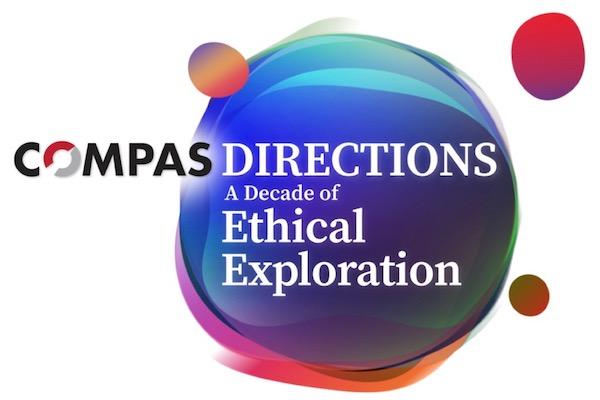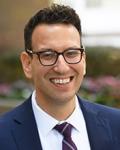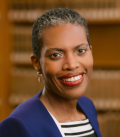
Overview
On May 5, the World Health Organization announced that Covid is no longer a global public health emergency. About a week later, the Biden administration allowed the national emergency and public health emergency declarations related to the pandemic to expire. Ending these emergency declarations has had wide ranging ramifications for public health as well as individual access to social goods, such as housing and workplace accommodation. This panel will discuss the ethical implications of ending emergency declarations: How should governmental bodies make these decisions? How do we end emergency declarations equitably and what is owed to those who remain vulnerable or who lose access to care?
The colloquium is part of the 2023-24 COMPAS Program COMPAS Directions: A Decade of Ethical Exploration. The event is open to the public with no registration required.
Panelists
Lindsay Wiley (UCLA)

Lindsay F. Wiley is a professor of law and Faculty Director of the Health Law and Policy Program at UCLA Law where she teaches torts and various health law courses. Her research focuses on access to health care and healthy living conditions in the U.S. and globally. She is the author of Public Health Law: Power, Duty, Restraint and Public Health Law and Ethics: A Reader (with Lawrence O. Gostin) and the forthcoming Feminist Judgments: Health Law Rewritten (with Seema Mohapatra).
Professor Wiley is the U.S. Rapporteur for the Lex-Atlas Covid-19 Project, a global project comparing responses to Covid-19, sponsored by the University College London, King's College London, and the Max Planck Institute of Comparative Public Law and International Law in Heidelberg, Germany. She is the Founder and Co-Chair of the Health Justice: Engaging Critical Perspectives in Health Initiative cosponsored by ChangeLab Solutions, LLC, the Institute for Healing Justice and Equity, and the Satcher Health Leadership Institute. She is a current member of the Board of Directors of ChangeLab Solutions, LLC, a former president and member of the Board of Directors of the American Society of Law, Medicine, and Ethics, and a former member of the National Conference of Lawyers and Scientists, a joint standing committee of the American Association for the Advancement of Science and the American Bar Association’s Section of Science and Technology Law.
Professor Wiley has held positions at American University Washington College of Law, the O'Neill Institute for National and Global Health Law at Georgetown University, the Center for Law and the Public's Health at the Johns Hopkins Bloomberg School of Public Health, and Gordon, Feinblatt, Rothman LLC in Baltimore, MD.
Doron Dorfman (Seton Hall University)

Doron Dorfman’s research and teaching focuses on disability law, health law, torts, employment law, family law, insurance law, and law and psychology. His work has won multiple writing awards, was cited by federal courts and the Israeli Supreme Court, and was featured in the New York Times, Washington Post, Los Angeles Times, and USA Today. In 2021, he was invited to testify before Congress on the relationship between vaccine requirements and anti-discrimination law.
Professor Dorfman’s research was published or is forthcoming in leading law reviews such as the Cornell Law Review, University of Pennsylvania Law Review, Boston College Law Review, and the Stanford Law Review Online. He also published in top peer review journals including the New England Journal of Medicine, Law & Society Review, Law & Social Inquiry, Journal of Health Politics, Policy & Law, JAMA Health Forum, and the Journal Law & the Biosciences. Professor Dorfman is a frequent contributor to the Bill of Health Blog at Harvard Law’s Petrie-Flom Center, an editor for the Equality Section of Jotwell, the chair of the AALS Section on Disability Law, the co-organizer of the Disability Legal Studies CRN in the Law & Society Association, and an affiliated researcher with the aChord Center: Social Psychology for Social Change at the Hebrew University of Jerusalem.
Prior to Seton Hall Law School, Professor Dorfman taught at Syracuse University College of Law. He earned a B.A. in communication (2009), an LL.B. (J.D. equivalent, 2009) and an LL.M. (2010), all from the University of Haifa. He later earned a J.S.M. (2014) and J.S.D. (2019) from Stanford Law School. Before arriving at Stanford, he was a litigator in private practice in Israel and was actively involved in NGOs such as Kav La’Oved-Worker’s Hotline, where he gave legal advice to disadvantaged workers and asylum seekers.
Moderator: Ruqaiijah Yearby (OSU)

Ruqaiijah Yearby, J.D., M.P.H is the inaugural Kara J. Trott Professor in Law at the Moritz College of Law and a faculty affiliate of the Kirwan Institute at The Ohio State University. She is also Co-founder and a faculty affiliate of the Institute for Healing Justice & Equity and one of the Co-Founders of the Collaborative for Anti-Racism & Equity.
Professor Yearby has received over $5 million in grant funding from the National Institutes of Health and the Robert Wood Johnson Foundation to study structural racism and discrimination in vaccine allocation as well as the equitable enforcement of housing laws and structural racism in the health care system. Her work has been published in the American Journal of Bioethics, American Journal of Public Health, Emory Law Journal, Health Affairs, and the Oxford Journal of Law and the Biosciences.
She earned her B.S. in Honors Biology from the University of Michigan, M.P.H. from Johns Hopkins School of Public Health, and her J.D. from Georgetown University Law Center. She worked at the U.S. Department of Health and Human Services as an Assistant Regional Counsel and served as a law clerk for the Honorable Ann Claire Williams of the U.S. Court of Appeals for the Seventh Circuit.
